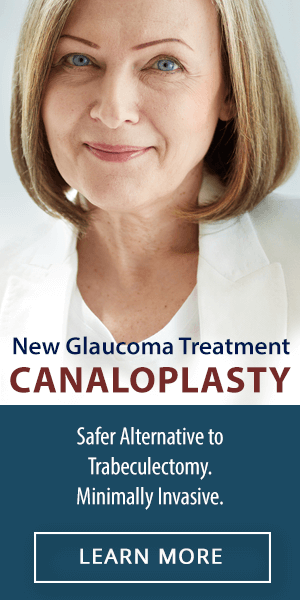 Some of us remember the game show “Name That Tune” in which contestants would compete to name a tune in the least number of notes. The back and forth would go something like this:
Some of us remember the game show “Name That Tune” in which contestants would compete to name a tune in the least number of notes. The back and forth would go something like this:
Contestant 1: “I can name that tune in 5 notes.“
Contestant 2: “I can name that tune in 4 notes.“
And so on…
At times it would get just ridiculous with a contestant trying to name a tune in only one note. This type of one-upmanship has a place in entertaining game shows but unfortunately has found its place in modern cataract surgery.
We’ve all heard that cataract surgery only takes 15 minutes, or 10 minutes, or some other ridiculously small amount of time. And, it is true that a talented cataract surgeon can usually complete a straightforward, uncomplicated cataract surgery (from incision to closure) in 10-15 minutes.
Unfortunately, the impression is that because the surgery only takes a small amount of time it is “a piece of cake” to do. Nothing could be further from the truth. Although it is every surgeon’s goal to make the surgery “a piece of cake” for the patient, cataract surgery (done correctly) takes a great deal of preparation, concentration, and skill.
Have you ever seen a Cirque du Soleil performance? The way those performers gracefully execute their acrobatics conceals the intense concentration, strength, agility, and balance required. Indeed, the best performers “make it look easy.” If you’ve ever gone home after a show and tried to replicate even the easiest of the positions you probably threw out your back.
I’m no athlete, but I know those Cirque du Soleil performers have practiced for hours each day, every day for years to make their 5 minute performance look “easy.”
A similar kind of dedication, skill, and inate talent is required to become an expert cataract surgeon. Most cataract surgeons in training take one to two hours to complete their first cataract surgery. Over the next couple of hundred cases they will often improve their skills enough to complete surgery in 20-30 minutes. Most surgeons never get down to 15 minutes per surgery.
Does it matter?
It does, but not for the reasons you may be thinking. Unfortunately, because some ego-centric surgeons started to advertise that they could complete cataract surgery in less than 10 minutes, Medicare and other insurances have cut their rates of payment from an inflation-adjusted rate of $6,000 in the 1970s to a little over $600 today. What this does not recognize is that (1) most surgeries take longer; (2) cataract surgery involves a significant amount of time planning prior to surgery; (3) there is a value that should be assigned to the skill required to perform modern cataract surgery.
Unfortunately, this reduction in perceived value of cataract surgery has resulted in pressure from surgery centers and hospitals to cuts costs, cut time, and cut corners. My average cataract surgery may take only 12 minutes, but if I feel that I need to take a little longer and place a suture I’ll do so. However, I know that the surgery center feels the financial pain everytime I do so as operating room time is very expensive (as is the suture). I’m just waiting for the day when the center tells me, “I’m sorry Dr. Richardson, but we can no longer stock that suture (or other device) because we lose money every case it is used.
Modern cataract surgery is a truly amazing convergence of technology and skill. It is a joy for most cataract surgeons to perform and is usually a “piece of cake” for the patient. However, modern financial constraints are placing undue burdens on both the surgery center and surgeon to cut costs in an attempt to keep pace with ever decreasing Medicare and insurance reimbursement.
There are appropriate venues for competitive one-upmanship – game shows, for example. But when reimbusement pressures result in surgery centers and hospitals competing for cataract surgeons based on how much they can save in time and equipment costs, I fear that patient safety could be at risk.
© 2009 David Richardson, MD






Leave a Reply